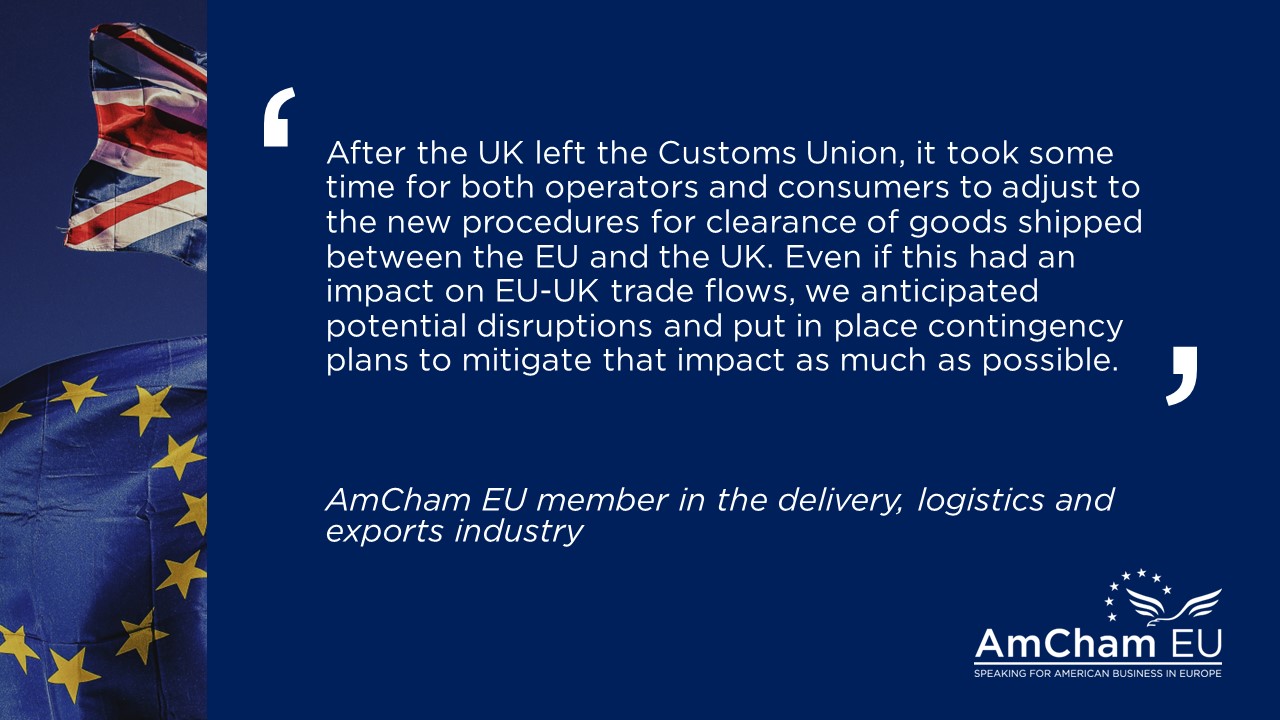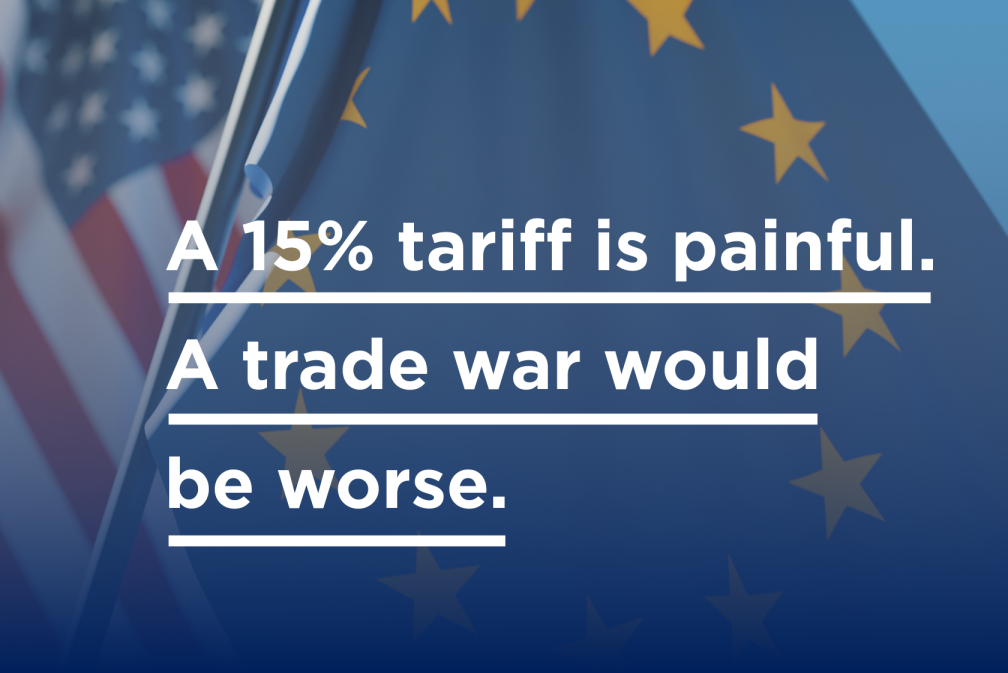By the numbers
Although the Trade and Cooperation Agreement between the EU and the UK creates a framework for business going forward, significant compliance expenses, the reimposition of trade barriers and new regulatory and customs requirements have led to additional costs and trade friction for companies working across Europe.
As a result, gross domestic product growth in the UK is lagging behind other leading European economies. Furthermore, according to an
analysis by Investment Monitor, ‘In 2020–21, FDI project numbers [in the UK] declined by 17% compared with the previous year. The UK’s investment attractiveness took a hit in the fallout from Covid-19 and the uncertainty surrounding a no-deal Brexit before the EU-UK free-trade agreement was signed in late 2020.’
The investment sphere wasn’t the only one to take a hit.
A report from Eurostat explains, ‘Between January 2020 and December 2021, EU imports from the United Kingdom decreased by 16.4% while imports from other non-EU countries increased by 30.1%. EU exports to the United Kingdom decreased by 2.1% while exports to other non-EU countries increased by 6.1%.’ Across sectors, Brexit has changed the relationship between the EU, the UK and the companies that do business in both markets.
In their own words
American businesses operating in both the EU and the UK have not been immune to disruption. In a series of interviews conducted in October 2022 about Brexit’s impact, American Chamber of Commerce to the EU (AmCham EU) members across sectors reported struggling with a multitude of issues since 2021, among them: customs bureaucracy and trade friction; regulations on quality assurance, package labelling and product origins; Value Added Tax (VAT) grouping and cost sharing; the EU equivalence designation for financial services; the free flow of data; and the loss of access to the Single Market and free movement of goods and services.
Even organisations that have adapted well to the new reality indicated they were tracking ongoing, unresolved issues. The loss of access to the Single Market in particular has had repercussions for some financial services organisations. ‘Over the last 15 years, we consolidated our presence throughout Europe more and more into London and the UK,’ said one AmCham EU member. ‘But after Brexit, we could no longer offer financial services from the UK into the rest of the EU. That was a big problem.’
Similarly, manufacturers are particularly sensitive to new trade barriers like rules of origin. ‘The concept of rules of origin is costing us a whole lot of money. If we bring a raw material from the US or Japan into a UK facility, do something to it and export it to the EU, it may not necessarily be classed as a UK good when it crosses into the EU. Then, we have to pay tariffs,’ according to one American-owned manufacturer with factories in the UK. ‘We’ve had to radically change some of our supply chains. It’s unbelievably complicated and unbelievably expensive.’
A significant contributor to supply chain difficulties for companies with operations in Northern Ireland is the EU and the UK’s disagreement over the Northern Ireland Protocol. With the protocol’s required checks, ‘we’ve had to put in place some convoluted supply chain changes because we can’t import certain items directly into Northern Ireland anymore,’ reported a manufacturing company. ‘We now service our customers in Northern Ireland from our warehouse in Germany, which takes six or seven days, as opposed to our UK warehouse, which takes one or two days.’
A new source of concern is the UK’s recent Retained EU Law Bill, which proposes to review thousands of laws developed by the EU together with the UK and revoke them by default unless a decision to keep or adapt specific laws is taken by an arbitrary deadline at the end of 2023 or possibly 2026. While it is healthy to periodically review laws – whatever their origin – it is a mistake to do so under excessive time pressure and without the due process, transparency, stakeholder consultation, impact assessment and democratic accountability that are crucial to delivering good regulation. The UK cannot afford another cliff-edge experience like Brexit that causes significant uncertainty and discourages investment.
Moving forward
For American companies operating in Europe, there is an economic imperative for the EU and the UK to have a cooperative relationship. Individual companies have proposed sector-specific recommendations for how the EU and the UK can collaborate in the future. For instance, despite relocating employees and hiring more staff in EU27 countries, an AmCham EU member in financial services advocates for free trade agreements to allow financial services to flow across jurisdictions. Likewise, a delivery, logistics and exports company welcomes efforts by the EU and the UK to streamline and simplify the exchange of customs information. As just one possibility to remove cumbersome administrative requirements, facilitate bilateral trade and improve the current relationship, the EU and the UK could reach a mutual agreement on safety and security declarations, as the EU already has with Norway and Switzerland.
The underlying thread between many sectors’ policy recommendations is the need for regulatory clarity and cooperation from the EU and the UK governments. These are essential when tackling unresolved issues and future regulations, which could, at best, provide better regulation but at worst, create new costly and unnecessary barriers to trade. To protect and attract investments, ensure the continuity of operations and safeguard jobs, decision-makers must avoid unnecessary or poorly thought through regulatory change. Companies need clarity, guidance and certainty from both the EU and the UK as soon as possible.
Taking a wider view, between the war in Ukraine, skyrocketing inflation, the compounded energy, food and climate crises, and the disruption of global supply chains, the current external environment is extremely volatile. By facilitating cross-Channel trade and cooperation, the EU and the UK can avoid additional disruptions that would exacerbate this geopolitical instability.
The UK remains a critical partner in the transatlantic relationship. With shared values like adherence to democracy, rule of law and human dignity, there is far more to unite the UK with the EU, as well as the US, than to divide it. Now more than ever, the EU, the UK and the US must stand together, firm in their principles, and nurture cross-Channel and transatlantic relationships in the face of serious global challenges.




